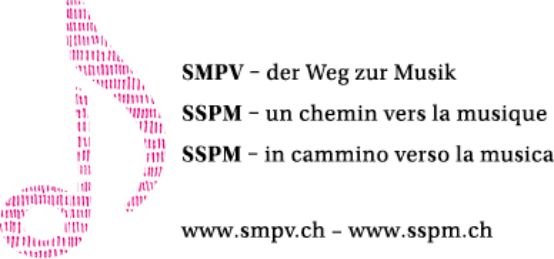Music and the law: Can a music school be required to set up a teaching staff representative?
An example inspired by the practice of the legal counsel of the Swiss Society for Music Pedagogy. Yvette Kovacs, Doctor of Law, SSPM legal advisor and attorney-at-law in Zurich, answers questions from SSPM members.
Question from an SSPM member
Can a music school be required to create a representation of the teaching staff?
Reply from Ms Kovacs:
Music schools organized under public law are subject to specific cantonal and communal regulations. As these are very numerous and diverse in Switzerland, it is not possible to give a general answer here, and each specific case would have to be studied on its own merits.
Music schools governed by private law, on the other hand, are subject to federal private law regulations.
The Participation Act (Federal Act on Information and Consultation of Employees in Undertakings of December 17, 1993, SR 822.14) contains the following provisions: the Act applies to all private companies in Switzerland with permanent employees. Art. 3 stipulates that in companies employing at least fifty workers, the latter may elect representatives from among themselves, grouped into one or more representa-tions. Art. 5 stipulates that when one-fifth of the workforce so requests, a secret ballot must be held to determine whether the majority of those voting wish to form a representative body. If this is the case, an election must be held, organized jointly by the employer and the employees. The number of employee representatives is determined jointly by the employer and the employees. The size and structure of the company must be taken into account. The representative body comprises at least three members (Participation Act, art. 7). The workers' representation defends the common interests of employees vis-à-vis the employer. It keeps them regularly informed of its activities (Participation Act, art. 8). Employee representation has the right to be informed in good time and in full of all matters of which it needs to be aware in order to perform its duties properly. The employer is obliged to inform the employee representatives at least once a year of the consequences of the course of business for employment and the workforce (Participation Act, art. 9). Cooperation between the employer and employee representatives in the area of company operations is based on the principle of good faith. The employer must support employee representation in the exercise of its activities. This includes providing the necessary premises, equipment and administrative services (Participation Act, art. 11).
It follows from the above that, under the Participation Act, the formation of an employee representative body may be required in music schools employing at least fifty workers (art. 3 in conjunction with art. 2 of the Participation Act).
An example inspired by the practice of the legal counsel of the Swiss Society for Music Pedagogy. Yvette Kovacs, Doctor of Law, SSPM legal advisor and attorney-at-law in Zurich, answers questions from SSPM members.
Question from an SSPM member
Can a music school be required to create a representation of the teaching staff?
Reply from Ms Kovacs:
Music schools organized under public law are subject to specific cantonal and communal regulations. As these are very numerous and diverse in Switzerland, it is not possible to give a general answer here, and each specific case would have to be studied on its own merits.
Music schools governed by private law, on the other hand, are subject to federal private law regulations.
The Participation Act (Federal Act on Information and Consultation of Employees in Undertakings of December 17, 1993, SR 822.14) contains the following provisions: the Act applies to all private companies in Switzerland with permanent employees. Art. 3 stipulates that in companies employing at least fifty workers, the latter may elect representatives from among themselves, grouped into one or more representa-tions. Art. 5 stipulates that when one-fifth of the workforce so requests, a secret ballot must be held to determine whether the majority of those voting wish to form a representative body. If this is the case, an election must be held, organized jointly by the employer and the employees. The number of employee representatives is determined jointly by the employer and the employees. The size and structure of the company must be taken into account. The representative body comprises at least three members (Participation Act, art. 7). The workers' representation defends the common interests of employees vis-à-vis the employer. It keeps them regularly informed of its activities (Participation Act, art. 8). Employee representation has the right to be informed in good time and in full of all matters of which it needs to be aware in order to perform its duties properly. The employer is obliged to inform the employee representatives at least once a year of the consequences of the course of business for employment and the workforce (Participation Act, art. 9). Cooperation between the employer and employee representatives in the area of company operations is based on the principle of good faith. The employer must support employee representation in the exercise of its activities. This includes providing the necessary premises, equipment and administrative services (Participation Act, art. 11).
It follows from the above that, under the Participation Act, the formation of an employee representative body may be required in music schools employing at least fifty workers (art. 3 in conjunction with art. 2 of the Participation Act).









